Walmart Is Being Sued Over Its Plastic Bags
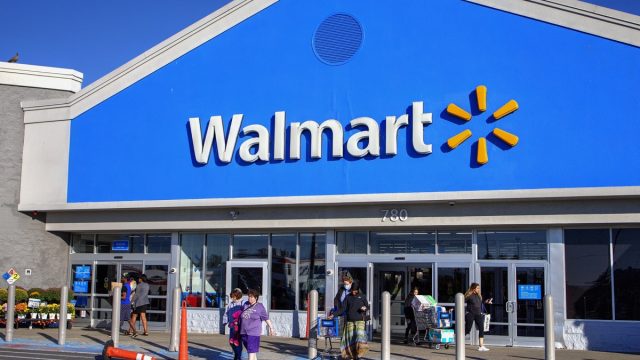
Sustainability has become an important consideration for retailers, as consumer demand for more environmentally conscious shopping options keeps growing. Companies across the board have embraced new sustainable strategies—including Walmart, which just announced plans to move away from plastic packaging waste for online orders. But despite these efforts, at least one official is now calling into question the mega-retailer’s commitment to its recycling initiatives. Read on to find out why Walmart is now being sued over some of its plastic bags.
READ THIS NEXT: New Law Wants to Introduce Tipping at Walmart and Other Major Retailers.
Walmart has been working to reduce its waste.
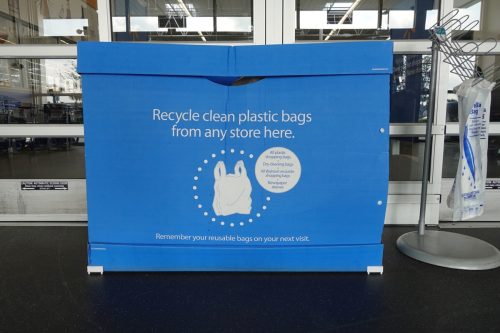
Back in 2005, Walmart set forth an ambitious goal for itself: zero waste. The big-box retailer said it aims to achieve this target by 2025 in the U.S. and Canada, and it has been taking steps over the past few years to eliminate more and more of its waste.
So far, this includes Walmart banning single-use plastic bags at over 420 locations, encouraging customers to use reusable bags, and putting collection bins in stores to increase access to plastic bag recycling.
In order to reach its overall zero-waste goal, Walmart has to achieve 100 percent recyclable, reusable, or industrially compostable packaging for it private brand packaging in the next two years. Currently, it’s at 58 percent, according to its website.
But now, an attorney general is calling into question some of Walmart’s work in the zero-waste space.
The retailer is being sued over some of its plastic bags.
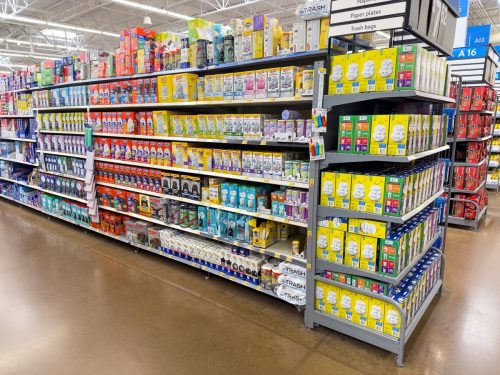
While Walmart has been focused on eliminating waste with its operational packaging, trouble may be lurking on store shelves.
Minnesota is now suing Walmart over its store-brand recycling bags, the Star Tribune reported. State Attorney General Keith Ellison announced the new lawsuit on June 6 at the nonprofit Eureka Recycling in northeast Minneapolis.
The lawsuit specifically targets Walmart’s Great Value brand recycling bags, as well as Hefty brand recycling bags from Reynolds Consumer Products, which was named as a second defendant in the suit.
As Ellison explained in a statement, Walmart and Reynolds are being sued for allegedly “taking advantage of Minnesotans’ good intentions to misleadingly market” their recycling bags—both of which are made of low-density polyethylene (LDPE) plastic.
RELATED: For more up-to-date information, sign up for our daily newsletter.
The suit claims that these recycling bags aren’t actually recyclable.
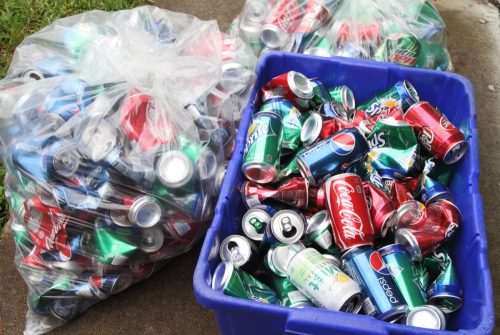
Walmart markets its Great Value brand recycling bags as a “convenient” and “quick” way for customers to sort and collect their recyclable materials. “Recycling at home is made easy,” the big-box retailer states in the product details for these bags on its website. The company also makes a point to mention that this product was developed to be used in “municipal recycling programs.”
But the Minnesota suit alleges that these claims are false, stating that these recycling bags cannot actually be recycled at any facility in the state.
“Plastic bags are not recyclable in our programs, and we don’t accept them. When recyclable material comes in to our facility contained in a plastic bag, we have to throw it away because there is too much risk of injury for our employees to rip open the bags as they come across the line,” Lynn Hoffman, the co-president for Eureka Recycling, said in a statement to Fox 9.
Hoffman added, “It is a common misconception that plastic bags are recyclable, which is made even worse by false marketing claims. We appreciate Attorney General Ellison for seeking accountability for these harmful practices.”
Walmart says it relies on its suppliers to “provide quality products.”
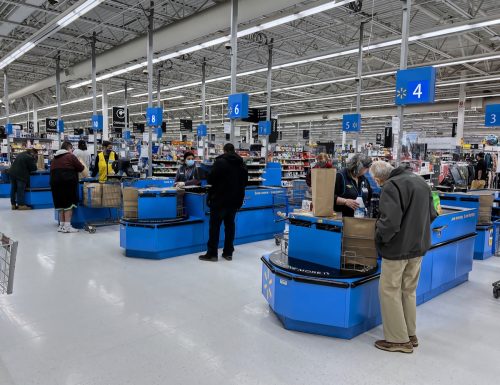
Instead of providing a way for consumers to reduce their own waste, Walmart’s Great Value brand recycling bags “raise costs for taxpayers, undermine well-intentioned consumers’ recycling efforts, and create more unrecyclable waste that ends up in our landfills and waterways,” according to the lawsuit from Minnesota.
As a result, Ellison is charging the retailer—and Reynolds—with consumer fraud, deceptive trade practices, false advertising, and deceptive environmental marketing claims, the Star Tribune reported.
“I’m holding Reynolds and Walmart accountable for putting their ill-gotten profits ahead of people, our environment and the law,” Ellison said in his statement.
When Best Life reached out to Walmart about the lawsuit, the company said it plans to respond in court.
“Walmart does not manufacture these items, and we look to our suppliers to provide quality products that comply with all applicable laws, including labeling requirements. We will respond in court as appropriate once we are served,” a spokesperson said in a statement.